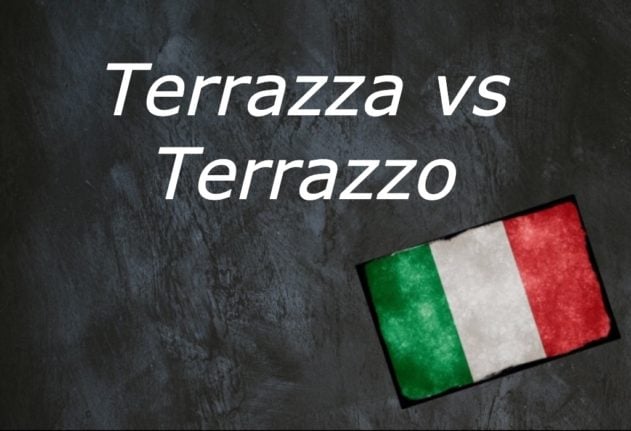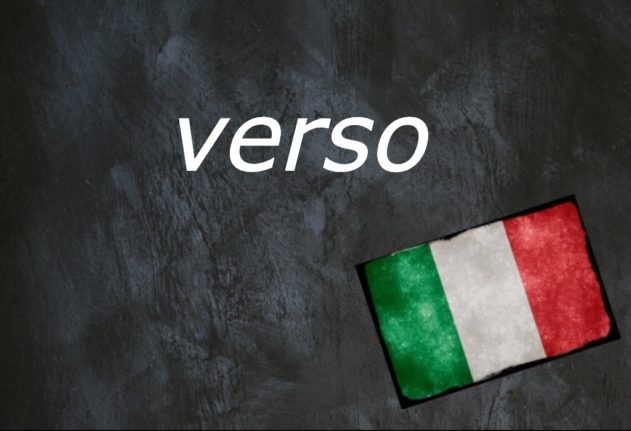During the hot months in Italy, the more fortunate ones cool off by sitting on their terrazza. Or is it terrazzo?
Though these two words are essentially identical save for the final letter, they are actually different. The difference does not translate in English where both terrazza and terrazzo are called terrace.
To break it down, a terrazzo (hear it pronounced here), is an open space that does not protrude from a building’s facade. This makes it different from a balcony (balcone), which does jut out from a building’s wall.
Puoi bagnare i fiori fuori sul terrazzo?
Can you water the flowers out on the terrace?
So what’s a terrazza?
A terrazza (pronunciation here) is located on the top floor of a building and is bigger than a terrazzo. For example, some hotels in city centres use their terrazza as a lounge bar, particularly if they offer a nice view of the surrounding landscape.
Andiamo in terrazza all’ultimo piano. C’è un sacco di spazio e aria fresca.
Let’s go to the terrace on the top floor. There is a lot of room and fresh air.
A terrazza isn’t necessarily part of a building. It can just be a structure built on top of an elevated point.
A famous terrazza which is not on top of a building is on the Pincian hill in Rome.
Terrazzo has a few different meanings as well.
In mountaineering terminology, it means a flat space on a rock face, often used for resting.
In interior design, it’s a type of flooring consisting of chips of marble or granite set in concrete and polished to give it a smooth surface.
Curiously, terrazzo exists in English with the same exact meaning.
This type of flooring derives from the 18th-century Venetian flooring style. It may come as little surprise then that there is a small town called Terrazzo in Veneto, the northeastern region where Venice is located.
Overall, the difference between terrazzo and terrazza isn’t always clear-cut to Italians either, with many native speakers using the terms interchangeably.
This means that you’ll likely never be criticised for using one instead of the other.
Next time you are thinking of going outside to enjoy some fresh air though, think about where you are. Are you on a terrazza or a terrazzo?
Do you have an Italian word or phrase you’d like us to explain? If so, please email us with your suggestion.
Make sure you don’t miss any of our Italian words of the day: download our app (available on Apple and Android) and then select the Italian Word of the Day in your Notification options via the User button.



 Please whitelist us to continue reading.
Please whitelist us to continue reading.
What do you mean by the “last floor” of a building? The top floor? But then you talk about a terrazza in a park. I’m confused…
Roof top ?